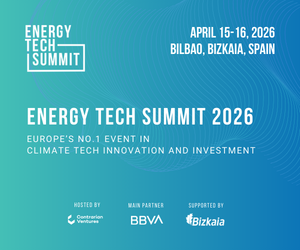Search - Search on Articles, Blogs & Tags
Total Results : 96
Mexico approves 20 new renewable energy plants
- 2025-12-19 06:41:52
- David Flin
Luz Elena González, Mexico’s Energy Minister, has announced private companies will invest €4.5 billion to build 20 renewable energy projects across 11 Mexican states. In addition, the government plans three more solar power plants and will invest nearly €1.8 billion in transmission infrastructure.
Casa dos Ventos receives authorisation to operate wind and solar farms in northeast Brazil
- 2025-11-26 06:43:36
- David Flin
Brazil’s National Electric Energy Agency (Aneel) has authorised Casa dos Ventos to operate new wind and solar farms in the northeast region of Brazil.
Mexico releases 2035 climate roadmap
- 2025-11-21 08:02:42
- David Flin
The Mexican Government has released its latest energy assessment, in which it states an expectation that nearly 70 per cent of all new installed capacity between 2025 and 2030 will come from renewables.
Acciona Energia retrofits 1 GWh BESS to solar plant in Chile
- 2025-11-14 05:42:12
- David Flin
Acciona Energia has announced it will add a 1 GWh battery energy storage system (BESS) to the 238 MW Malgarida solar power plant in the Atacama Desert in Chile.
Solar, wind and BESS surge in Mexico’s power mix
- 2025-10-03 06:39:11
- David Flin
The power market analytics firm Aurora Energy has published a report stating that 18 GW of renewable energy plants and battery energy storage systems (BESS) will be commissioned in Mexico by 2030, with costs falling and electricity demand rising.
Siemens Energy to work on Hostos interconnection project
- 2025-09-05 06:35:48
- David Flin
Caribbean Transmission Development Company (CTDC) and Siemens Energy will collaborate on the Hostos Interconnection Project, which includes a submarine interconnection between Puerto Rico and the Dominican Republic.
Major new solar power projects in Brazil
- 2025-08-13 05:46:17
- David Flin
Casa dos Ventos, one of Brazil’s largest renewable energy developers, mostly known for wind power projects, is adding over 1.5 GW of new solar capacity across four projects to its portfolio.
Utility-scale agreement for first major solar plant in Belize
- 2025-07-11 07:42:52
- David Flin
Belize Electricity Limited (BEL) has signed an agreement with Blair Athol Power Company Limited (BAPCL) for the construction of a 15 MW solar power plant in Buena Vista, Corozal District, Belize.
Puerto Rico suffers major blackout
- 2025-04-17 06:11:30
- David Flin
Puerto Rico suffered an island-wide blackout on 16 April, leaving all 1.4 million electricity consumers without power at one point.
Repsol starts power generation at Chile’s largest wind farm
- 2025-04-16 06:47:33
- David Flin
Repsol has officially started electricity production at the 364 MW Antofagasta Phase 1, Repsol’s largest wind project to date and one of Chile’s biggest renewable installations.











